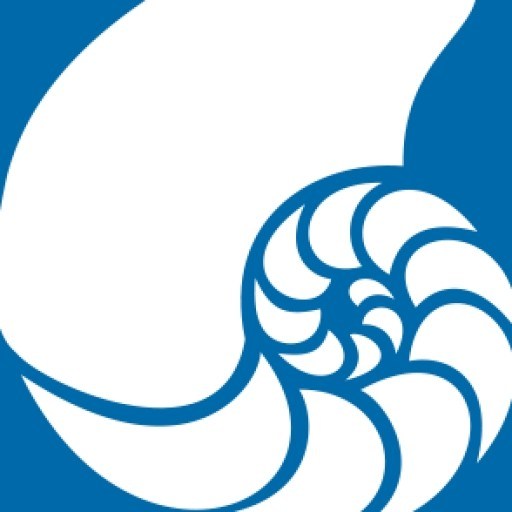Photos of university / #uofnm
The Bachelor of Science in Health Education at the University of New Mexico is a comprehensive undergraduate program designed to prepare students for diverse careers in health promotion, community health, and educational outreach. This program emphasizes the development of knowledge, skills, and attitudes necessary to improve health outcomes across various populations. Students will explore core topics such as health behavior theories, epidemiology, environmental health, and health program planning and evaluation. The curriculum integrates both theoretical foundations and practical applications, equipping graduates with the ability to design, implement, and assess effective health education strategies that address current public health challenges.
Throughout the program, students engage in hands-on learning experiences, including internships with community organizations, health agencies, and educational institutions. These practical opportunities enable students to apply their knowledge in real-world settings, fostering competencies in communication, leadership, and cultural competence. The program also emphasizes the importance of ethical considerations and evidence-based practices in health education. Graduates of this major are well-prepared to pursue certification as health education specialists and to contribute actively to health promotion initiatives at local, state, and national levels.
The faculty at the University of New Mexico are experts in various fields of public health and health education, providing mentorship and research opportunities that enhance student learning. The program supports a multidisciplinary approach, encouraging collaboration across health sciences, social sciences, and community development. Upon completion of the program, students are equipped to work in diverse settings such as schools, healthcare organizations, government agencies, non-profit organizations, and corporate wellness programs. The Bachelor of Science in Health Education at UNM is committed to producing culturally competent professionals dedicated to advancing health equity and improving quality of life through education and community engagement.
| Credit Hours |
||
| EDPY 511 | Introduction to Educational Statistics | 3 |
| HED 506 | Health Behavior Theory | 3 |
| HED 507 | Research Design in HPER | 3 |
| HED 511 | Management of Health Promotion Programs | 3 |
| HED 571 | Advanced Community Health Education Research | 3 |
| HED 572 | Community Health Education Program Planning, Development and Evaluation | 3 |
| HED 574 | Epidemiological Principles for Health Educators | 3 |
| HED 576 | Measurement and Evaluation in Health Promotion | 3 |
| HED 582 | Advanced Multicultural Health Education Research and Applications | 3 |
| HED 595 | Advanced Field Experiences | 3 |
| Total | 30 |
Plan I: Thesis
Required course work, 30 credit hours; thesis, 6 credit hours (defense of thesis required).
Plan II: Non-Thesis (Passing Comprehensive Examination Required)
Required course work, 30 credit hours; 6 credit hours of approved course work.
Total Program Credit Hours: 36 credit hours
- Completed international admissions application
- Must hold a bachelor's degree from an accredited college or university in the United States or its equivalent in another country.
- Generally, applicants must have a cumulative grade point average of at least 3.0 (B) or its equivalent in their last two undergraduate years and in their major field.
- $70.00 application fee
- Official English language proficiency results from either the TOEFL, IELTS, PTE-Academic, or Cambridge CPE or CAE
- Complete transcripts and degree certificates with official English translations, if necessary, from all post-secondary schools attended must be uploaded to the graduate application
- Official academic transcripts and degree certificates and with official English translations, if necessary, from all post-secondary institutions attended
- Financial Responsibility form and official bank statements
Financing studies for the Health Education program at The University of New Mexico typically involve a combination of federal, state, institutional, and private sources of financial aid. Students are encouraged to complete the Free Application for Federal Student Aid (FAFSA) to determine their eligibility for grants, loans, and work-study opportunities. The university provides various scholarships specifically aimed at health education students, including merit-based awards and need-based grants. Additionally, students may qualify for federal student loans such as subsidized and unsubsidized Stafford Loans, which help cover tuition costs and living expenses. The university also offers institutional scholarships that may require a separate application process, often based on academic achievement, leadership, or financial need. Work-study programs are available, providing students with part-time employment opportunities on campus to help finance their education while gaining relevant experience. External funding sources, including state-specific scholarships and private organizations, can also contribute to financing studies. International students or out-of-state residents should explore the availability of in-house grants or private scholarships that support their educational expenses. It is advisable for students to consult the Financial Aid Office at The University of New Mexico for comprehensive guidance tailored to their individual circumstances. The university's financial aid counselors can assist in developing a payment plan, exploring all possible funding options, and understanding the terms and conditions of each type of financial support. Overall, studying health education at The University of New Mexico can be financially feasible through a combination of these various funding sources, allowing students to focus on their academic and professional development without undue financial burden.
The Bachelor of Arts in Health Education at the University of New Mexico is designed to prepare students for careers in health promotion, disease prevention, and health education. The program emphasizes the development of knowledge and skills necessary to plan, implement, and evaluate health education programs in various settings, such as schools, community organizations, healthcare facilities, and government agencies. Students will explore topics including human health, behavioral science, health communication, and health policy, gaining a comprehensive understanding of factors influencing health and wellness. The curriculum often includes coursework in public health principles, health disparities, epidemiology, and environmental health, equipping graduates with a multidisciplinary perspective on health issues.
Students are encouraged to engage in practical experiences through internships, community service projects, and research opportunities, which provide real-world applications of learned concepts. The program fosters skills in communication, leadership, and cultural competence, preparing graduates to work effectively with diverse populations. Additionally, the faculty members are actively involved in research and community outreach, contributing to the advancement of health education practices. After completing this program, graduates can pursue careers as health educators, community health coordinators, wellness coordinators, or continue their education in graduate health programs, including public health, health promotion, or health education.
The university’s supportive academic environment, coupled with state-of-the-art facilities and resources, ensures students have a well-rounded educational experience. The Bachelor of Arts in Health Education at UNM emphasizes not only academic excellence but also ethical practice and ongoing professional development. The program aligns with national health education standards, preparing students to meet certification requirements and to become effective health advocates. With a mixture of coursework, hands-on activities, and community engagement, students are equipped to make meaningful contributions to public health and improve health outcomes across diverse populations. The program’s flexible structure allows students to tailor their learning experiences according to their interests and career goals, ensuring they are well-prepared for the dynamic healthcare landscape.







